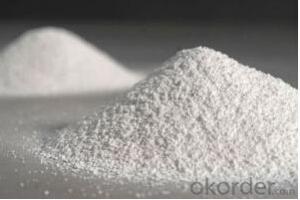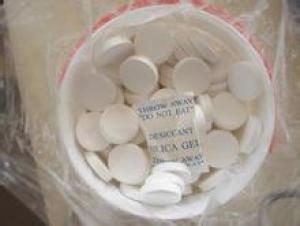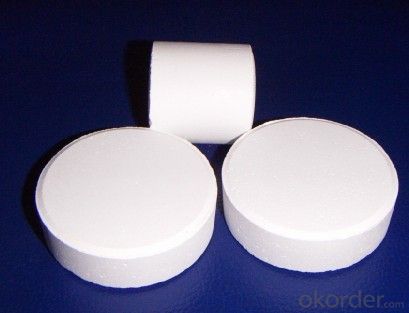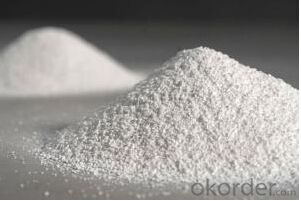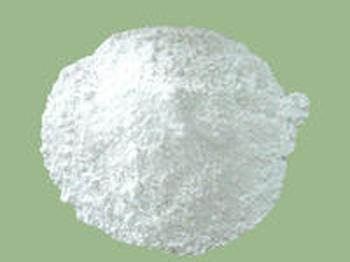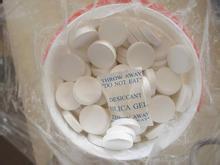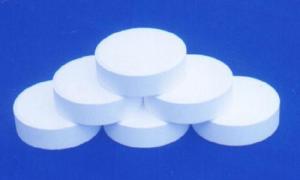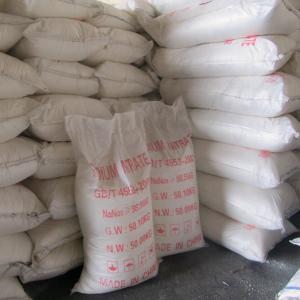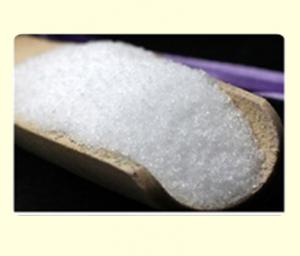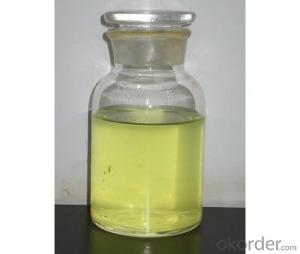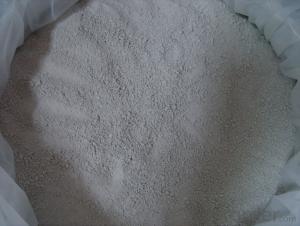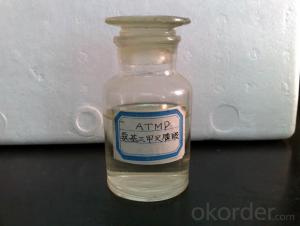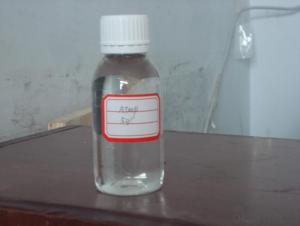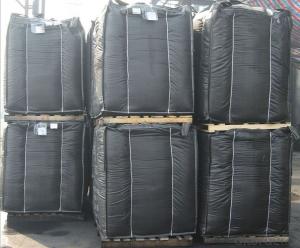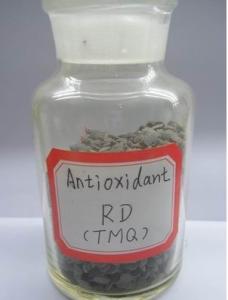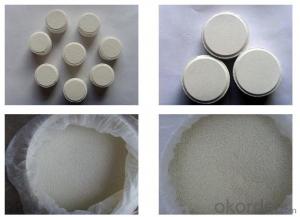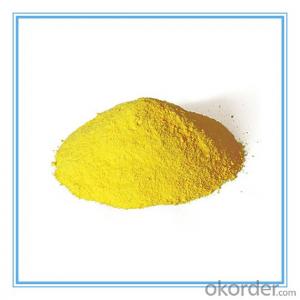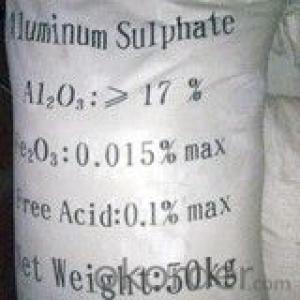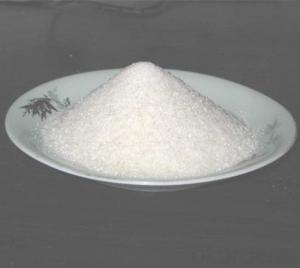Cyanuric Acid Powder Standard Quality From China Factory
- Loading Port:
- Tianjin
- Payment Terms:
- TT OR LC
- Min Order Qty:
- 17 m.t.
- Supply Capability:
- 1800 m.t./month
OKorder Service Pledge
OKorder Financial Service
You Might Also Like
Cyanuric Acid
General Descriptions:
Trade Name: Isocyanuric Acid
Other name: Cyanuric Acid; 1,3,5-Triazine-2,4,6-triol
Uses: Bleaches and sanitisers.
Formula: C3H3N3O3
Molecular Weight: 129.07
CAS NO.: 108-80-7
Appearance: White powder, granular or colored tablet form, non-toxic and odorless
Specification:
| ITEM | SPECIFICATION | RESULT | |||
| Content | ≥98.5% | 98.64% | |||
| Moisture | ≤0.5% | 0.11% | |||
| PH value | 4.0-4.5 | 4.26 | |||
| Fe2+ | ≤15ppm | 7.5ppm | |||
| NH4+ | ≤200ppm | 97ppm | |||
| Ash | ≤0.1% | 0.05% | |||
| Insoluble matter in DMF | ≤0.3% | 0.25% | |||
| Appearance | White crystalline power | White crystalline power | |||
| Mesh number | 95% pass 80 mesh | 95% pass 80 mesh | |||
| White degree | ≥89 | 90.5 | |||
| Conclusion: | The product complies with the standard above. | ||||
Packing:
in 25kg, 1000kg bag for powder
in 25kg plastic bag or 50kg PE drums for granular

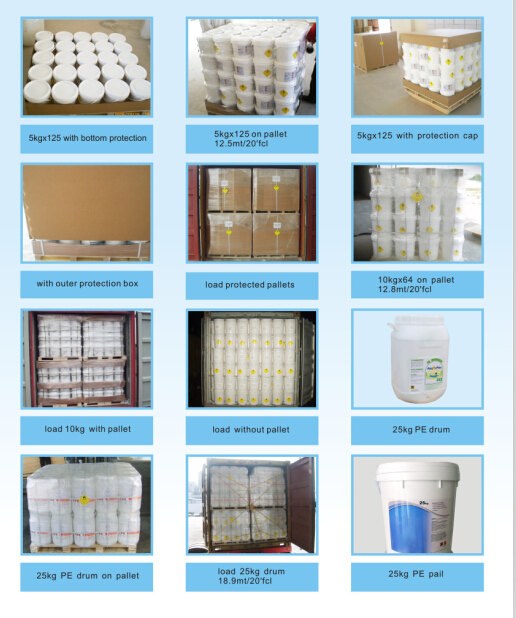
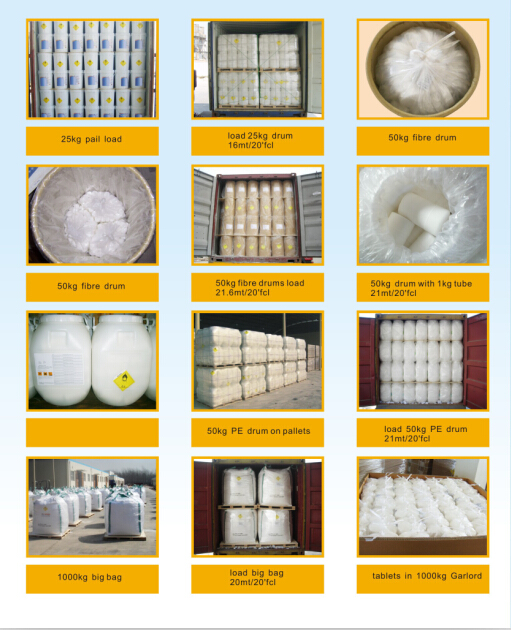
Storage:
kept in a light-proof,well-colsed,dry and cool place.
Professional Loading:
1.We will provide you with professional loading
2.We have one team supervise uploading the materials. We will check the container, the packages
3.Every step, taking pictures and make records.
4.we will make a complete Loading Report for our customer of each shipment
- Q: What is a catalyst?
- The catalyst itself reduces the energy barrier (Ea, activation energy) of the chemical reaction, making the reaction easier.
- Q: Why can't catalysts make an unfavorable reaction favorable?Can anyone give me a relatively simple explanation for this?Thank you so much in advance!
- Catalysts, as enzymes, only change the activation energy (the energy the compound needs to gain to transform into products), they don't change the Gibbs energy values of reactants nor products. Therefore, if the delta G of the reaction is positive, it'll still need free energy to complete. They make a reaction complete faster than in normal conditions, but don't change the actual possibility for that reaction to happen. In the human body, a lot of reactions of catabolism have a positive G value and these reactions needs to get energy from other coupled reactions that have a negative value, so the total value is still negative. Many of them use hydrolysis of ATP to provide that energy, as its hydrolysis is about -30 kJ/mol in physiological conditions. I don't know what class you're in to ask this question, so can't really know if this answer is too simple or complicated for u... sorry in advance! Jo?l
- Q: Seems intuitive that it wouldn't, but I dunno the qualitative difference between activation energy & Gibbs free energy. I'M TOO LAZY TO GOOGLE I GOTS STUFF TO DO
- A catalyst can change the activation energy not the Gibbs energy. The Gibbs energy is the energy difference between the initial state and final state. A catalyst cannot change that. Imagine you are driving from school to home. How you drive do not change the height difference between the school and your home. However, a catalyst can change your path which can change the routine you drive from school to home. So if there is a hill in between your school and you home, you have the choice to drive through it or drive around. Here is a picture: upload.wikimedia.org/wikipedia/co... A catalyst can change the height of the barrier, but cannot alter the initial or final state.
- Q: Who knows hydrogen and nitrogen in the high temperature, high pressure and catalyst conditions for the synthesis of ammonia chemical equation ah? Urgent! The SOS
- 3H2 + N2 ===== 2NH3 conditional catalyst
- Q: okay im doing a project for my classroom about catalyst and i have to draw a picture but when i looked up on google i just saw a bunch of random stuff and a couple were metal so thats why im asking this question. :)
- a okorder /...
- Q: Describe the role of a catalyst and a substrate in a chemical reaction.
- Describe Catalysts
- Q: When you write a chemical equation, how do you want to add "catalyst" and "?" When you do not have to write?
- This is the need for your memory, write a few times, will naturally cooked
- Q: how a catalyst can provide a new route in forming the product?
- a catalyst does not provide a new route. a catalyst effects the rate of a reaction by lowering the activation energy required for the reaction - the number of successful collisions and reactions therefore increase and rate of reaction increases.
- Q: Is the enzyme in the enzyme bigger than gold?
- No: A biological enzyme is a biocatalyst that is produced or extracted from a biological organism. The catalyst is a substance that accelerates the chemical reaction and does not change itself in the chemical reaction. In layman's terms, the catalyst is a special substance that catalyzes it. Enzyme as a member of the catalyst family has its own special properties. Each of the biological enzymes will only selectively react to some chemical reactions.
- Q: Does all chemical reactions have a catalyst?
- Not some reaction without catalyst
Send your message to us
Cyanuric Acid Powder Standard Quality From China Factory
- Loading Port:
- Tianjin
- Payment Terms:
- TT OR LC
- Min Order Qty:
- 17 m.t.
- Supply Capability:
- 1800 m.t./month
OKorder Service Pledge
OKorder Financial Service
Similar products
Hot products
Hot Searches

